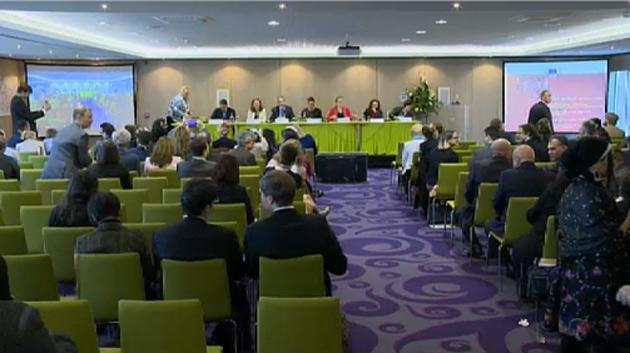Commentary: What can be expected of European Union meetings on Roma?

Will the position of Romani people in the European Union ever improve? Does the EU have the concepts in place and enough tools available to effectively boost the integration of the Romani minority?
Are the Member States cooperating on fulfilling these aims? These are the questions that the regular sessions of the European Platform for Roma Inclusion reviews.
The ninth session of the Platform has just taken place in Brussels, attended by Czech Human Rights Minister Jiří Dienstbier. Its first session was in April 2009 in Prague, and ever since it has reviewed basic problems with Romani minority integration, repeatedly focusing on the problems of education and employment.
At the 2010 session, for example, the Platform discussed materials for the Strategy to Combat Social Exclusion by 2020. The situation of the Romani minority is different in various EU countries and is understandably linked to the economic situation and local traditions of the given country or region, but nevertheless it can be seen from the discussions and statistics reviewed by the Platform that some basic problems are held by all countries in common when it comes to Romani people.
The primary common problem concerns the education of Romani children. Statistic show, for example, that very few Romani children in Europe attend nursery schools, from 0.2 % in Kosovo to more than 17 % in Romania to not quite 30 % in the Czech Republic.
In Hungary, according to official statistics, there are approximately three times as many mentally disabled people among the Roma compared to the non-Roma, which, like in the Czech Republic, impacts the way Romani children are educated. Overall statistics show that Romani people spend on average half as much time in education systems compared to other EU inhabitants.
Some of the numbers about Romani education are even more dramatic: In Bulgaria and Romania, 50 % of all school-aged Romani children do not attend school at all. The basic questions that such gatherings at EU and national level raise, and that have also been part of the discussion around documents such as the Czech Government’s Romani Integration Strategy and the Strategy to Combat Social Exclusion, are questions such as: Do such high-level political meetings actually aid the situation?
Are the adopted strategies effective? Are the billions of euro from the Structural Funds being efficiently invested?
Haven’t we been discussing the same thing for years now without any clear results, without any unequivocal progress being made on solving the problems of combating the growth of ghettos, educating Romani children and employing Romani adults, and overcoming prejudice and racism? There are no easy answers to these questions.
We can currently follow a concrete example of this in the Czech Republic: The European Commission has criticized the Czech Republic for years over the high number of Romani children in the "special schools", but it seems the Czech Government does not have a clear reform prepared, although Parliament has recently passed a hopeful amendment to the Schools Act. The question is whether without this "European pressure" we would even have made this much progress.
In the years ahead, new options for drawing money from EU funds to address the problems connected with Romani integration will open up. It remains to be seen how the Czech Republic takes advantage of this opportunity.